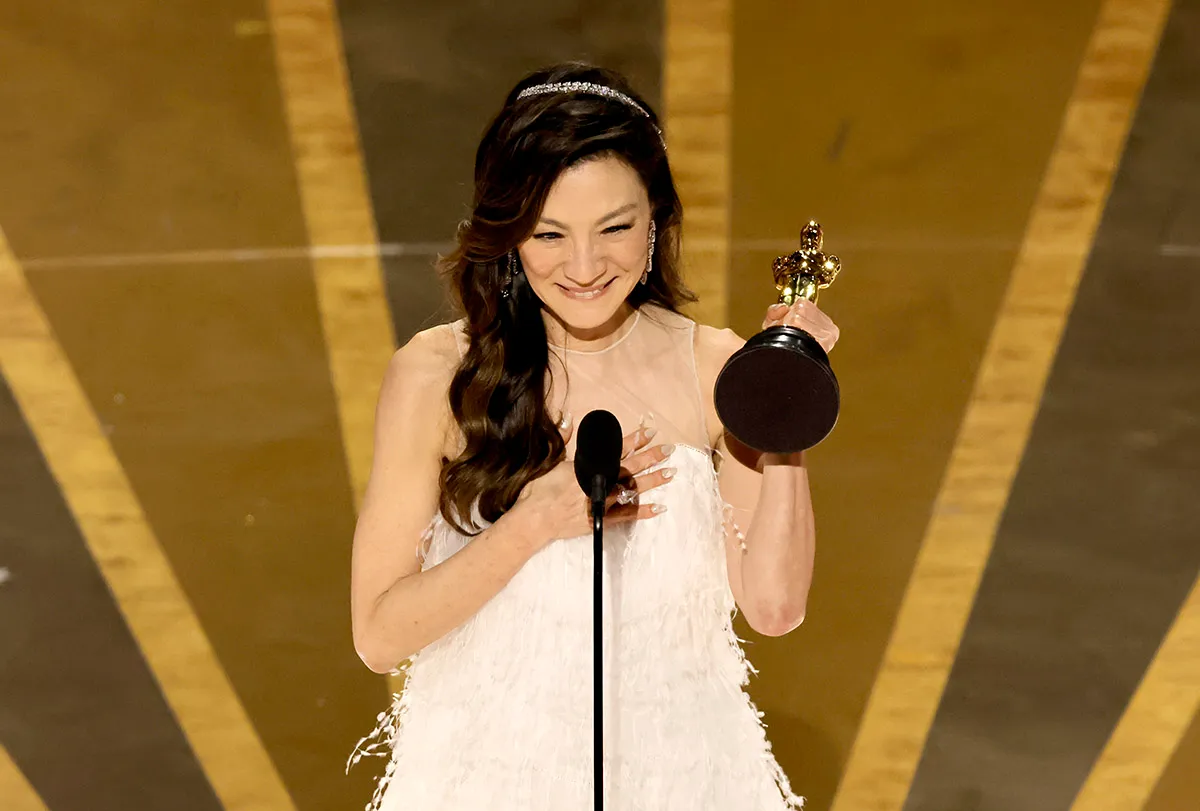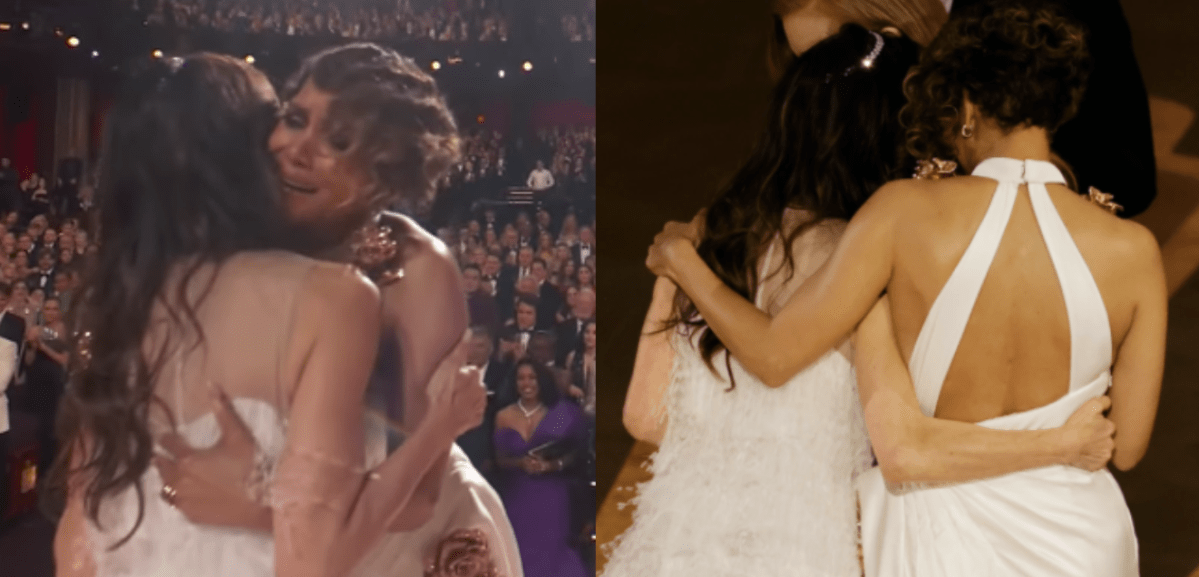As a half Haitian, half Puerto Rican girl growing up in the outskirts of Queens, NY, I didn’t really see myself in the media presented to me—a fact that shaped me into the creative I am today. When I write in my personal life or report for work, I always try to highlight the stories about Black and POC experiences because representation matters, especially for young kids who look to movies and TV for examples of what they could be or achieve when they’re older.
So you can imagine how much I teared up during last night’s Oscars when Halle Berry presented Michelle Yeoh with her Oscar for Best Actress for her role in Everything Everywhere All at Once, which made history as Yeoh is the first Asian woman to win that particular award in 95 years and only the second woman of color to ever win in that category in 21 years. Who won the award before her? Ms. Halle Berry.
In 2002, Berry took home the Oscar for Best Lead Actress for Monster’s Ball, in which Berry played a waitress who has an affair with the corrections officer who assisted in executing her husband. At the time, Berry didn’t think she had a chance of winning the Oscar because, as she told the New York Times, “if you didn’t win the Globe, you really didn’t get the Academy Award.” But, against all odds, she was given the prestigious honor and dedicated the award to “every nameless, faceless woman of color that now has a chance because this door tonight has been opened.”
Unfortunately, that door wasn’t truly open. In the 20 years since Berry’s victory, only 12 other Black actors have won Oscars, no other Black actor has taken home the award for best actress, and it took another eight years from Berry’s nomination for a Black woman to even make it into the category again with Gabourey Sidibe being recognized for her role in Precious in 2010.
And, in the case of Asian actors, the bar has been even lower. Yeoh is the first Asian actor win in a lead acting category, though she is technically the second person of Asian descent to be nominated for the award of Best Lead Actress. Merle Oberon was nominated for the award in 1936, but hid her Sri Lankan ancestry and passed for white throughout her acting career to try to escape racial persecution and exclusion. In her acceptance speech, Yeoh took note of her historic victory by dedicating her award to “all the little boys and girls who look like me watching tonight, this is a beacon of hope and possibility.”

It’s important to highlight POC and Black creatives in any space because of moments like this. It shouldn’t take 95 years for the Academy to recognize talent just because that talent comes from a marginalized group. Hollywood needs to wake up and pay attention to the talented actors, directors, editors, etc. that are sitting under their noses. Here’s hoping Yeoh’s win really does break down the door Berry started to open 21 years ago.
(feature image: ABC/Kevin Winter/Getty Images)










Published: Mar 13, 2023 03:04 pm